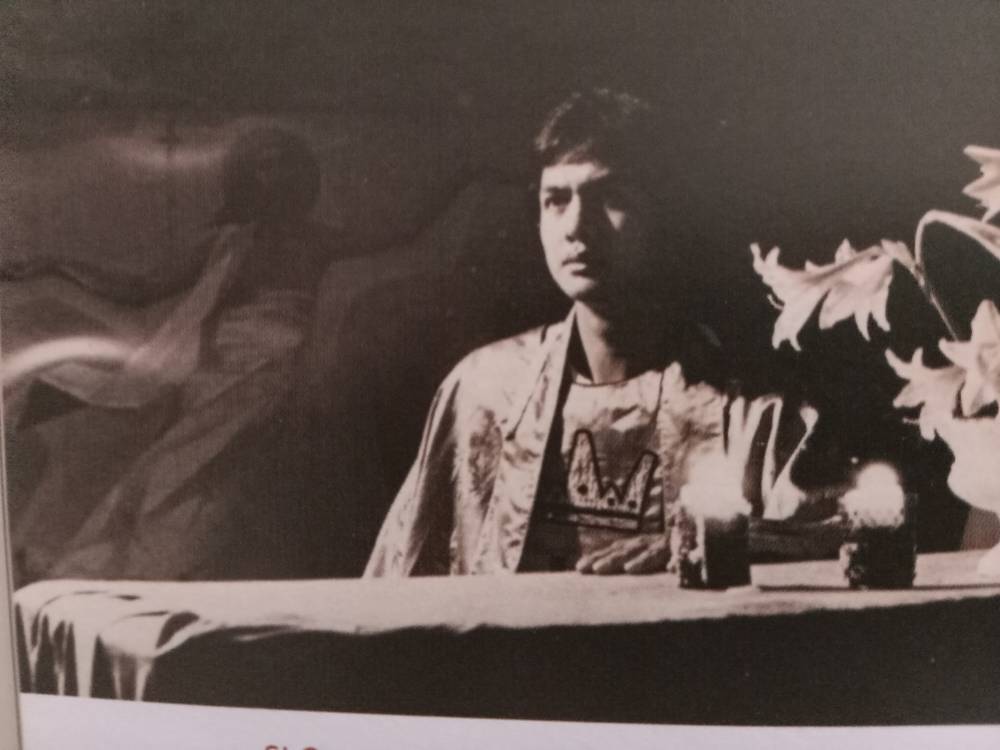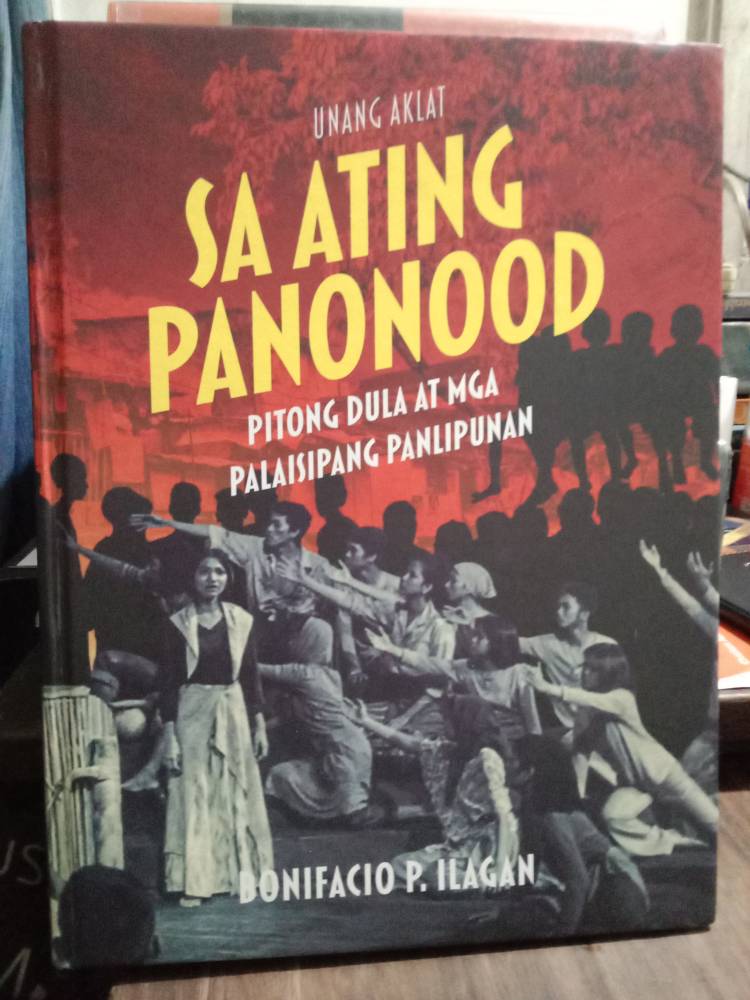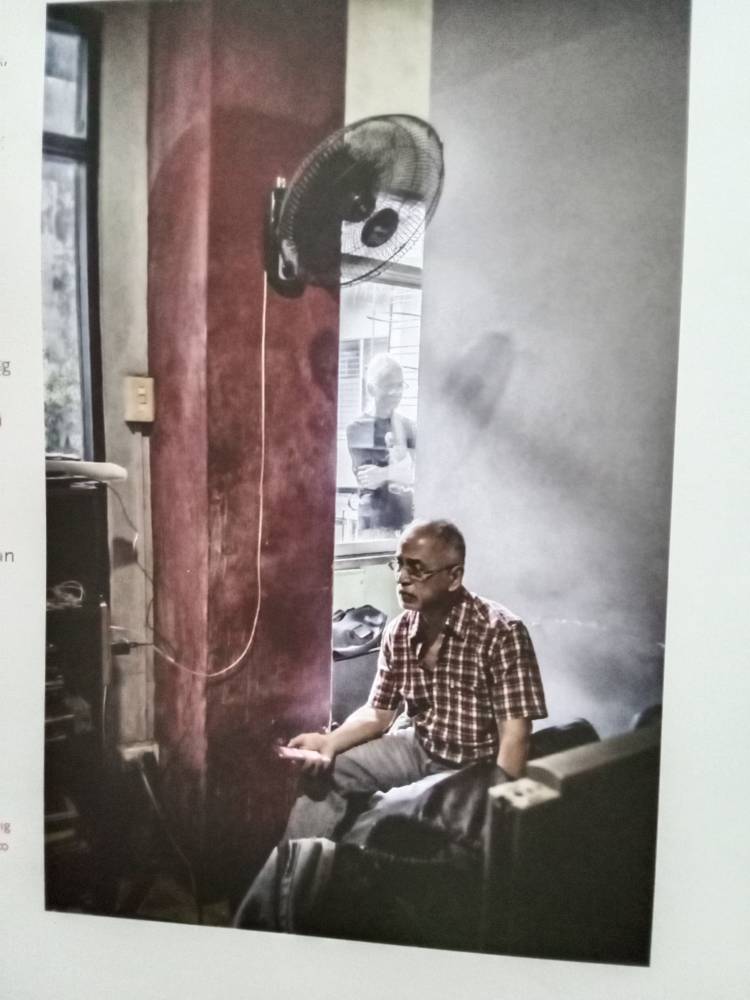Echoes of martial law: Book of plays recalls tumultuous ’70s

The book “Sa Ating Panonood: Ilang Dula at Palaisipang Panlipunan,” by activist-playwright Bonifacio P. Ilagan, is a trip back in time for me, a past whose echoes still reverberate today—the bad old days of martial law in the 1970s, capped by the triumphant People Power in February 1986.
I had participated in these events, though in a small way, as a staffer of Graphic magazine with officemates including Ninotchka Rosca, Mila Aguilar, and Pete Daroy; as a director of the Concerned Artists of the Philippines with Lino Brocka, Behn Cervantes, and Pete Lacaba; and finally, as a cultural columnist at Malaya (1984-1989).
This handsome coffeetable book (published and recently launched by Erehwon Artworld Corp., with book design by Tom Estrera III) contains seven plays, but this is only part of the story. The second part of the book deals with sociopolitical reflections (palaisipan panlipunan). It is also filled with photos of that era, along with actual production shots.
Ilagan is a well-known activist and writer who was imprisoned and tortured during the Marcos dictatorship. His works for theater, film, and TV have won awards from many cultural organizations, including the Cultural Center of the Philippines, Palanca Awards, Palihang Aurelio V. Tolentino, Catholic Mass Media Awards, Star Awards, and Famas.
Battle lines
In “Sinisip sa Buhay/Tunggalian” (1970-1971), the battle lines are drawn. The setting is Tarlac and the bone of contention is a coveted piece of land with a factory supervised by the militant Ka Amado and the farmers, who form a Greek chorus. His daughter is Rosa, the love interest of Teroy, forced to serve the hacienderos Don Federico and Doña Imelda, who are sugar barons.

The couple strike a deal with “Mr. Nixon,” an American who wants to develop the area into a US military-industrial complex. The Philippine Constabulary is, of course, on the side of the powerful when push comes to shove (literally).
“Pagsambang Bayan” (People’s Mass) is the most celebrated of Ilagan’s plays and has gone through several incarnations since 1977, when it was first presented by the UP Repertory Company under the direction of Behn Cervantes. The main character is Pastor/Pari, first played by screen actor Orestes Ojeda, and he could be either a Protestant pastor or a Catholic priest, to underscore the ecumenical Church.
Here the enemy is unseen and the Church is an ally of the oppressed, represented by workers, peasants, students, and the indigenous peoples. The sectors call attention to the abuses they have endured and issue a call for action.
The Catholic Mass is closely followed but with a lot of revolutionary rhetoric. In a “radical” move in the 1977 production, director Cervantes had the priest (Ojeda) stripped of his chasuble, given a towel to wrap around his shoulders, and a bladed weapon. The playwright’s version was different, with the priest given new garments to signify a new ordination. Either version can be used, wrote Ilagan in his notes, depending on the occasion and the need.
“Pagsambang Bayan” was revived as a musical in 2017, a production of the Tag-ani Performing Arts Society, with music by Jed Balsamo and direction by Joel Lamangan. The work is included in his book.
“Ang Pag-uusig” (1980) is a one-act play based on Chapter 45 of Rizal’s “Noli Me Tangere,” where the revolutionary Elias makes an appearance. Here the elderly farmer, Kapitan Pablo, a moderate, becomes a radical when his daughter is raped by the friar Damian, and his two sons are killed by the alferez, a Guardia Civil official.
Harrowing
“Dukot” (2009) is the script of a film which won major awards from Famas, Gawad Tanglaw, and Gawad Genio Awards, including Best Director for Joel Lamangan, Best Actor for Allen Dizon, and Best Actress for Iza Calzado. It was also shown in Europe, Canada, Australia, and many cities in the Asia-Pacific region. The extended torture scenes shocked some Europeans in the audience, a Filipino priest (Bro. Karl Gaspar) reported.
“Dukot” is the harrowing story of an activist Junix (Dizon) and his girlfriend Maricel (Calzado) who are arrested, mercilessly tortured by intelligence agents, and the traumatic effect on their family and friends. A lawyer, a human rights worker, and a brave security guard come to their aid but are unable to prevent their tragic fate.
“Dukot” is a dramatization of painful events which occurred during the watch of President Gloria Macapagal-Arroyo. It was like martial law all over again, although “matagal nang wala si Marcos,” as one distraught mother cried out.

“Mabuhay ang Bagong Kasal!” is a complete contrast to “Dukot” and was inspired by Bertolt Brecht’s “The Respectable Wedding.” It is Ilagan in a new vein, showing his versatility. The play is, in the author’s own words, a farce, a laugh-out-loud comedy about a wedding reception gone wrong.
Bea and Justin are a young, middle-class couple who have just been married in church and find that the chic hotel promised by Bea’s ninong (an ex-governor who just might be her real father) is a rundown establishment.
One hilarious complication leads to another, and Bea’s hot to trot mother flirts with Justin’s father, who is legally separated from his wife (“it’s been soooo long,” he moans). But don’t think the playwright’s political consciousness will just fade away, for the political situation simmers in the background, as President Duterte’s police hitmen, on the lookout for addicts, assault a barangay.
The book ends with “Ang Batang Rizal at ang Lihim ng Liwanag,” one in a series of short films produced by the Erehwon Center for the Arts. It won the Festival Director Award/Independent Achievement Award at the 2022 International Film Festival in New York.
The film starred Ruby Ruiz (Doña Teodora) and Prinze Red Casiple (Pepe), directed by Fritz Silorio and with music by Michael Dadap. It is based on the story of Rizal’s mother recounting to him the story of the child moth who disobeyed its mother, approached the light, and was consumed by it. For the mature Rizal (voice-over), this represented dying for his country.
“Sa Ating Panonood” is the testament of a playwright and activist who has suffered much for his political advocacy and for his art. The plays are well-crafted propaganda, enlivened by snippets of humor and an artist’s sensibility.
The book “Sa Ating Panonood: Ilang Dula at Palaisipang Panlipunan” is available at Erehwon Center for the Arts, tel. no. 7758-5082, @erehwonartcenter.com, Lazada and Shopee.




















